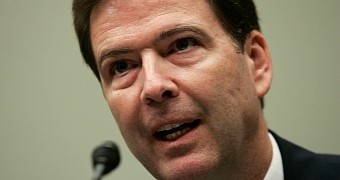With the launch of iOS 8, Apple introduced a passcode lock that keeps your data safe from prying eyes. That’s something that the general population values greatly, but not the FBI.
Interviewed on the latest efforts by Apple and Google to add thick layers of security on top of your private data, FBI Director James Comey is “very concerned” that law enforcement has been stripped of the privilege to knock on their doors with a warrant in hand and demand access to someone’s device.
Apple’s commitment to your privacy
Around the time those raunchy celeb photos were making waves on the Internet, Tim Cook sent out a clear message that iOS 8 would make it impossible for government officials to tap your phone.
The Cupertino giant even set up a special site with the promise to update it with information regarding its efforts to keep your data safe. Here’s what they had to say:
“On devices running iOS 8, your personal data such as photos, messages (including attachments), email, contacts, call history, iTunes content, notes, and reminders is placed under the protection of your passcode. Unlike our competitors, Apple cannot bypass your passcode and therefore cannot access this data. So it's not technically feasible for us to respond to government warrants for the extraction of this data from devices in their possession running iOS 8.”
Feds feel locked out
FBI Director James Comey sees this as a threat to national security. Sure, it’s nice to have an airtight phone, he says. But not if you’re a terrorist or a kidnapper.
“I like and believe very much that we should have to obtain a warrant from an independent judge to be able to take the content of anyone's closet or their smart phone,” he is quoted as saying. ”The notion that someone would market a closet that could never be opened -- even if it involves a case involving a child kidnapper and a court order -- to me does not make any sense.”
Apple is doing its bit
Comey does seem to have a point, but Apple has not devised any form of technology that “enables” a criminal to play out any wrongdoings. The terrorist could just as well not carry one at all.
Yet, he insists that “There will come a day -- well it comes every day in this business -- when it will matter a great, great deal to the lives of people of all kinds that we be able to with judicial authorization gain access to a kidnapper's or a terrorist or a criminal's device.”
“I just want to make sure we have a good conversation in this country before that day comes. I'd hate to have people look at me and say, ‘Well how come you can't save this kid,’ ‘how come you can't do this thing’.”
The truth lies somewhere in the middle. Sure, Comey’s arguments are solid. And the FBI probably wouldn’t feel so locked out, had users not felt betrayed by their own government.

 14 DAY TRIAL //
14 DAY TRIAL //